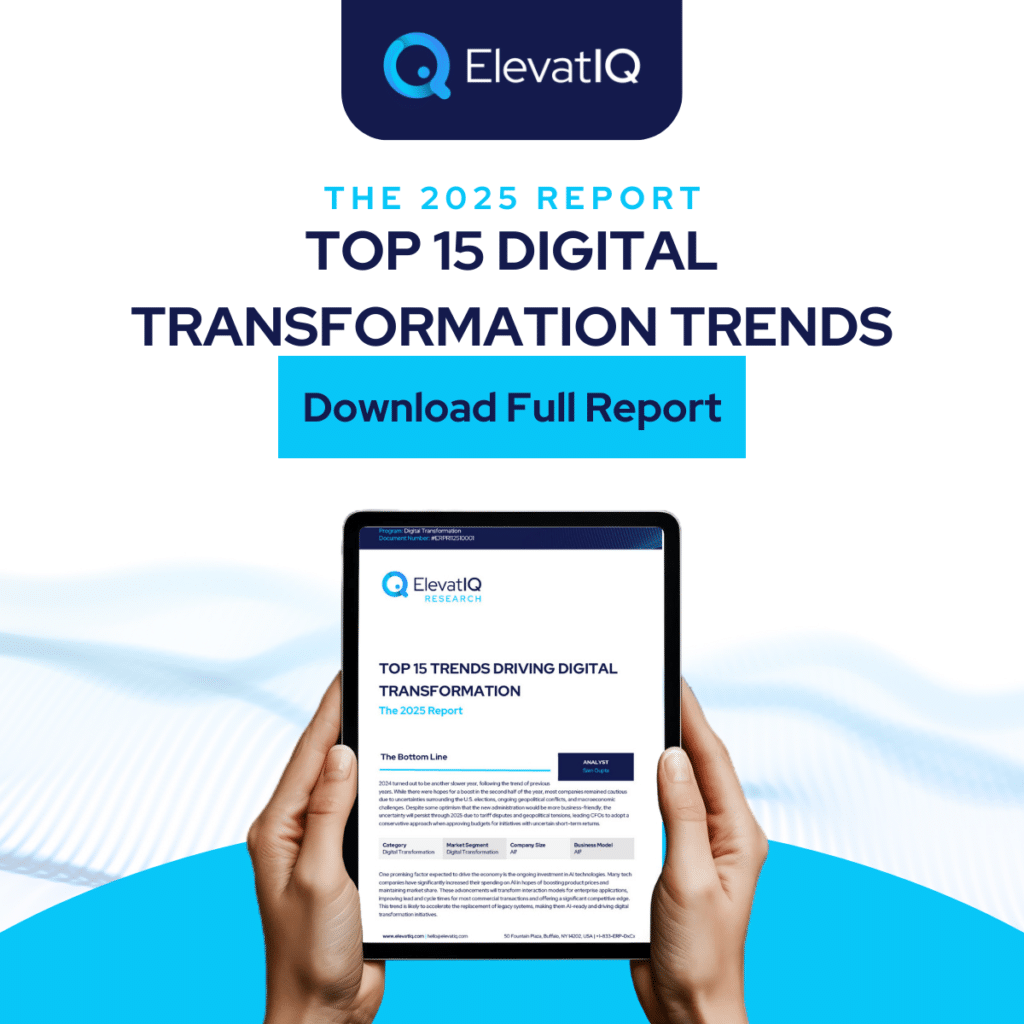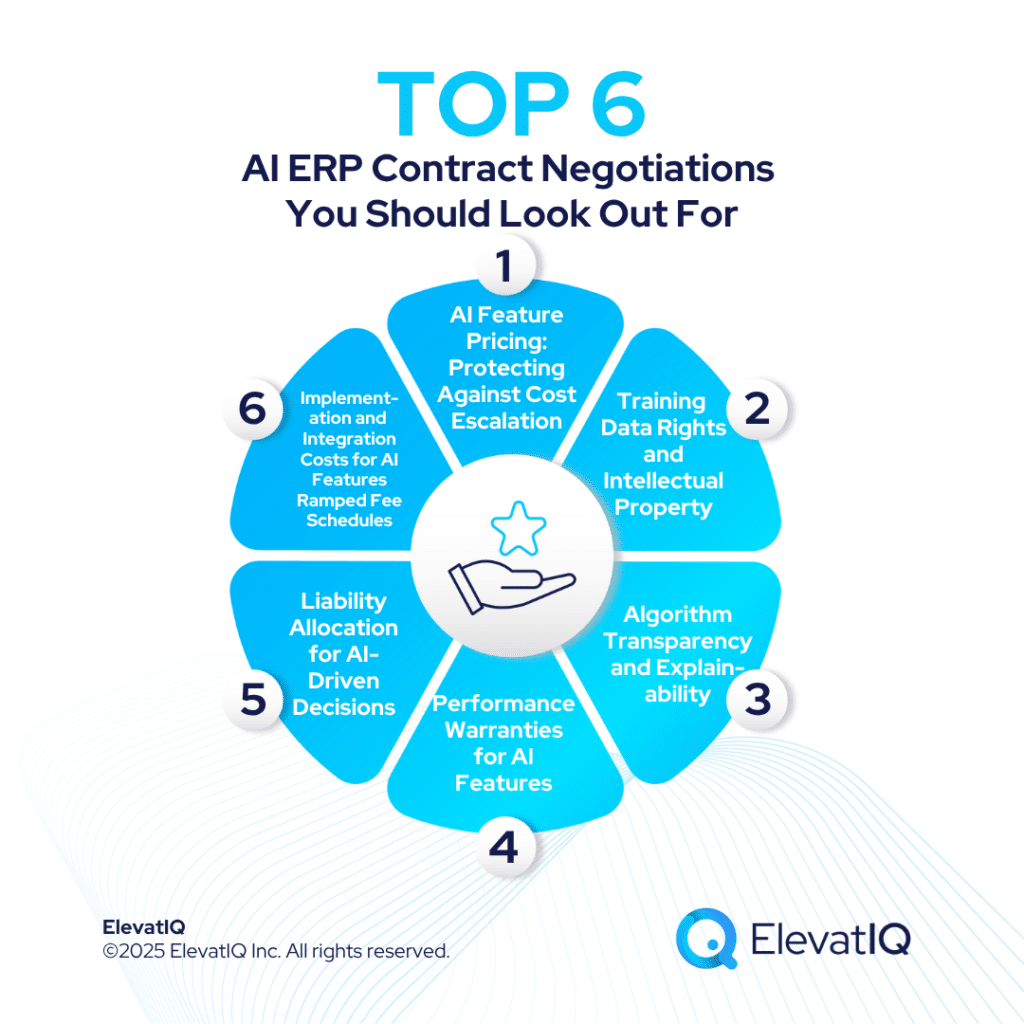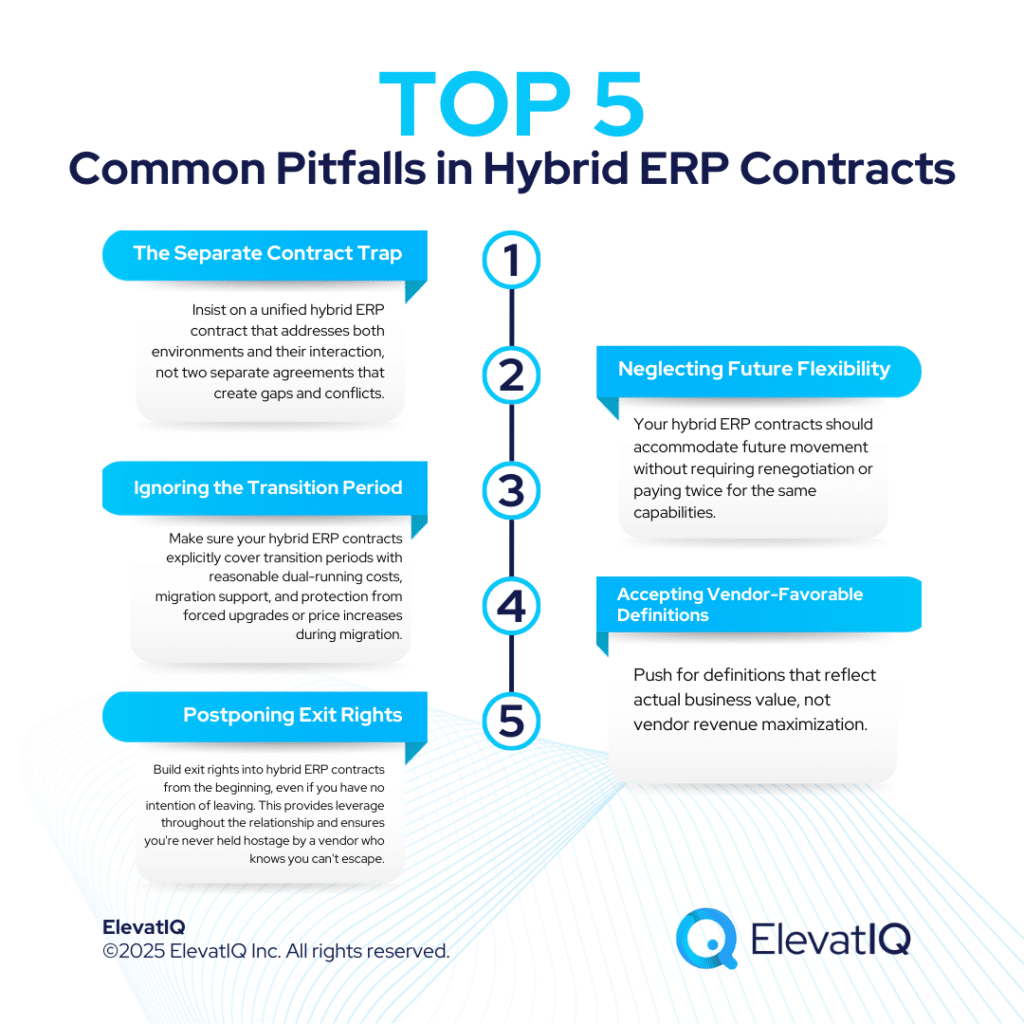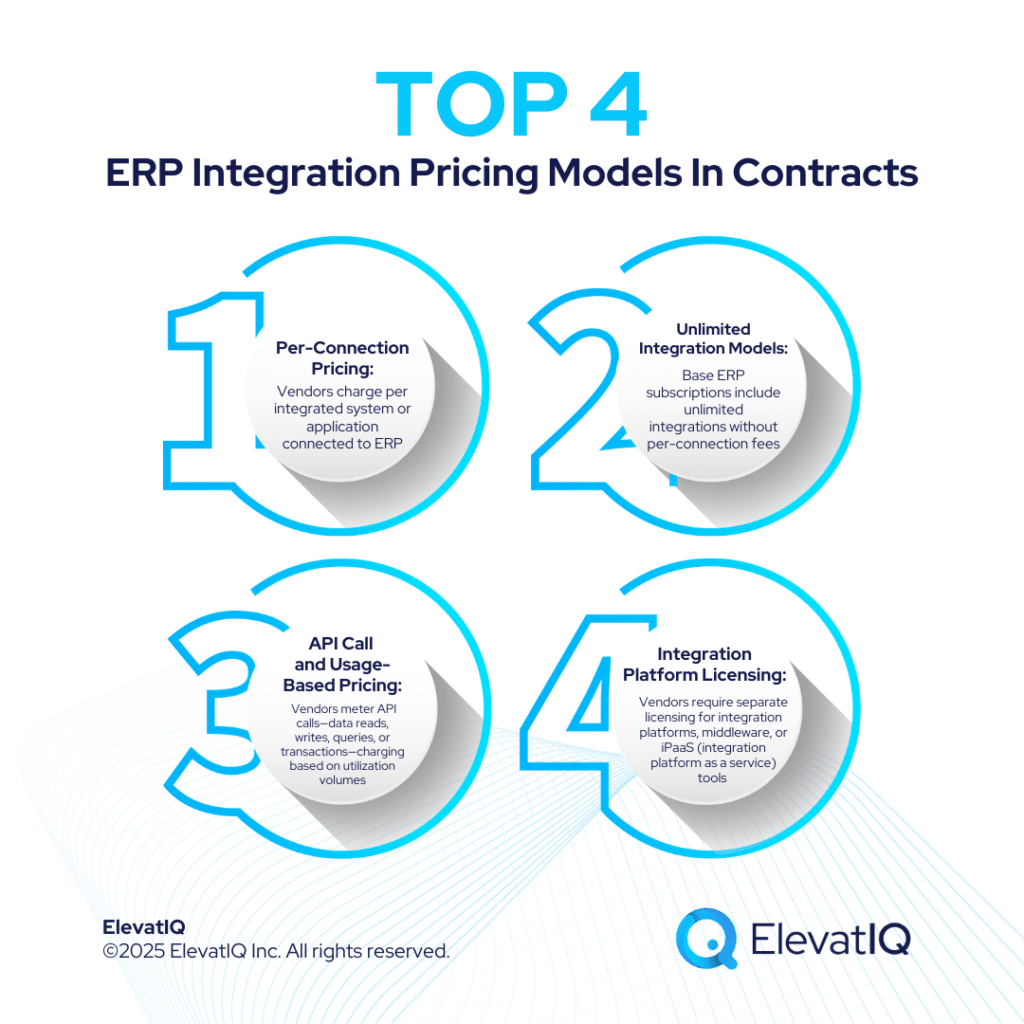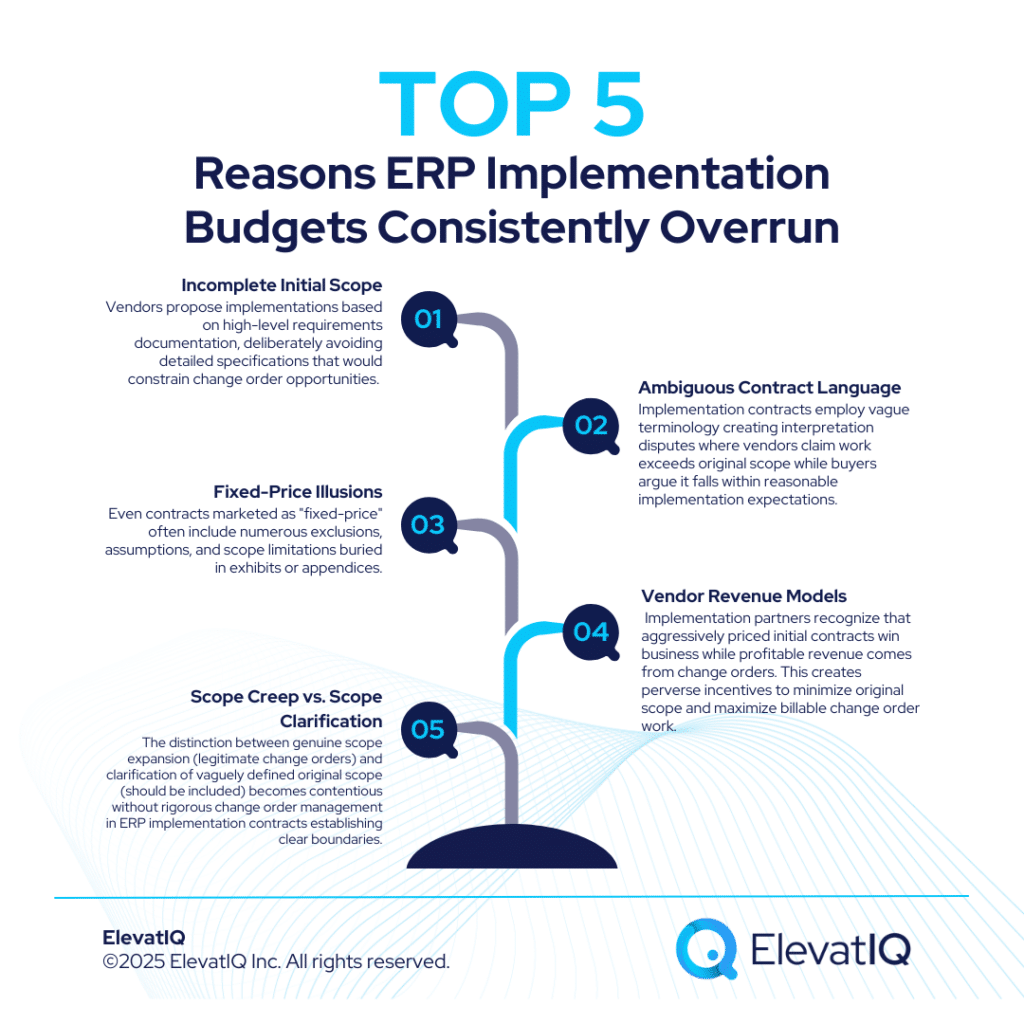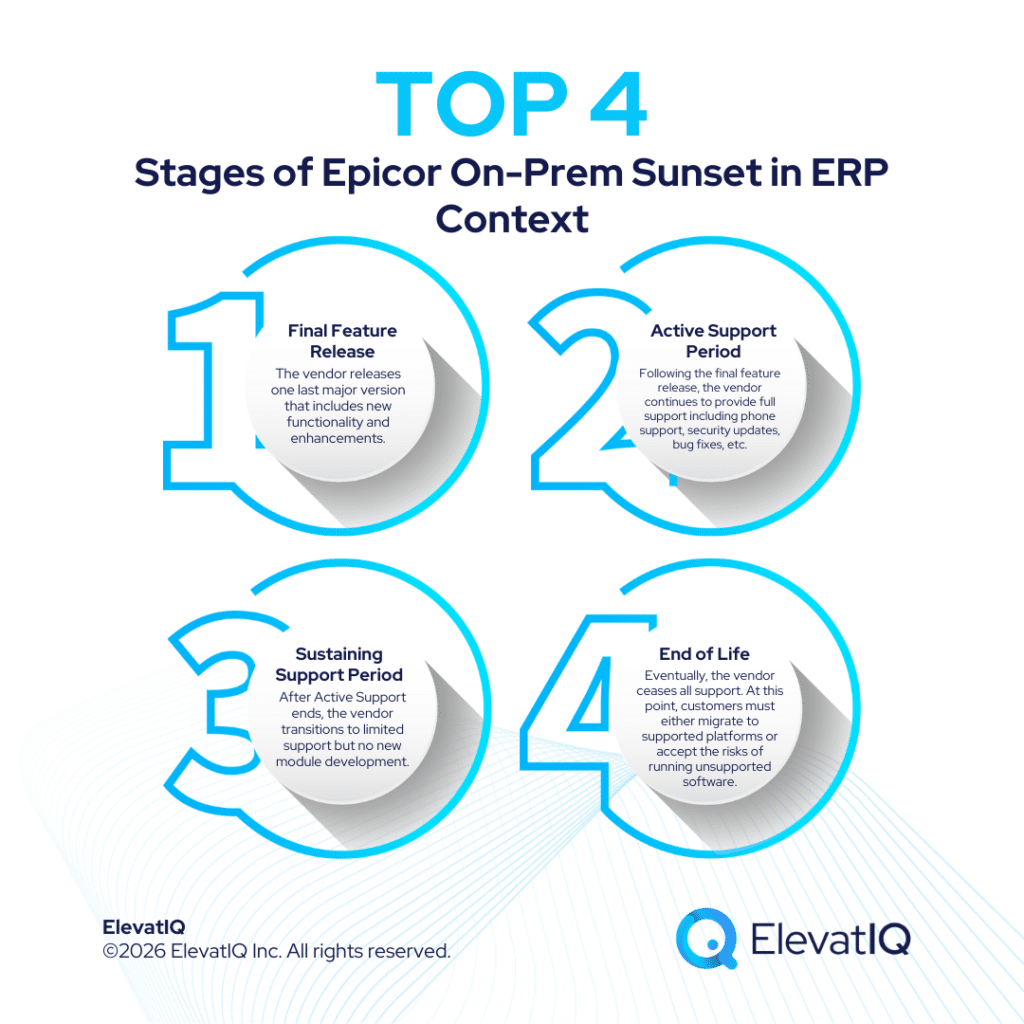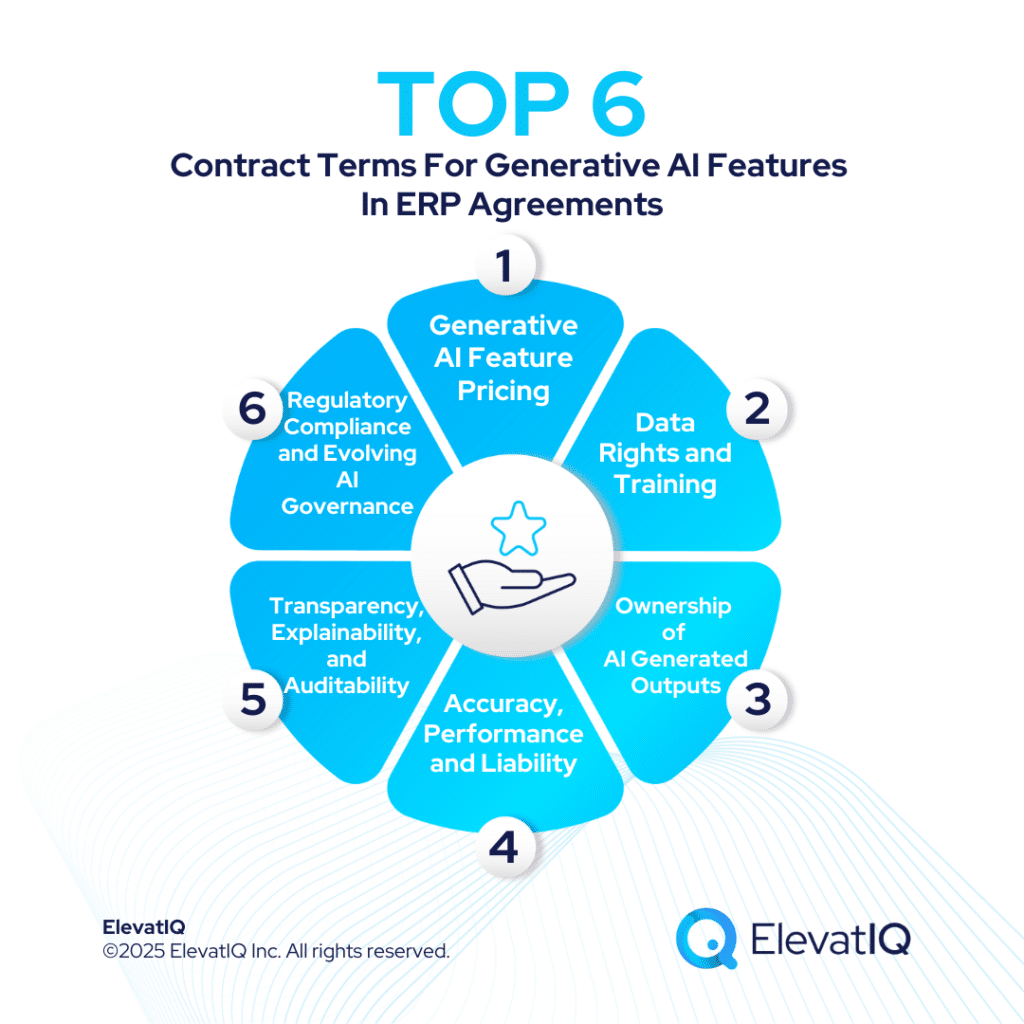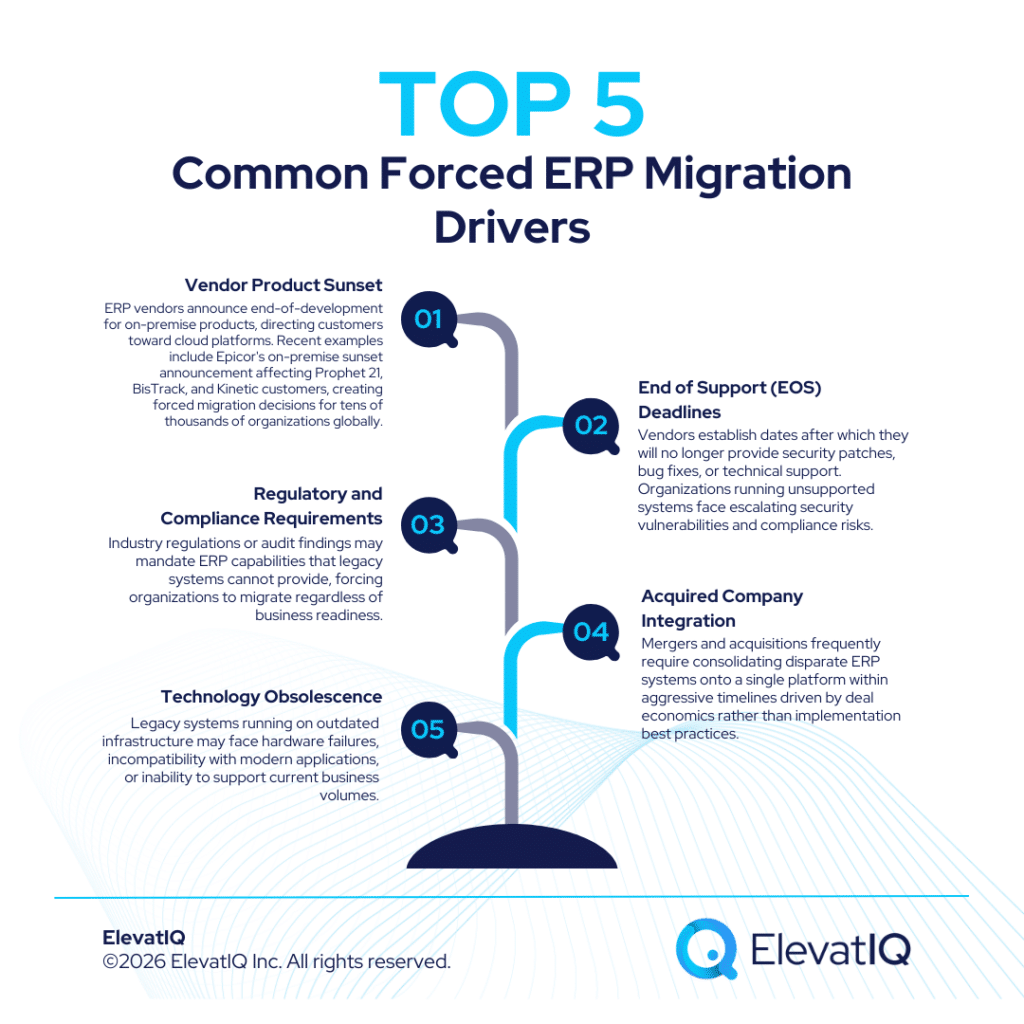Last Updated on November 3, 2025 by Shrestha Dash
Artificial intelligence has rapidly evolved from a futuristic concept to a fundamental component of modern ERP systems. With many organizations having already deployed AI capabilities in some capacity, the technology has moved beyond experimental implementations to become expected functionality that shapes vendor roadmaps, competitive positioning, and contract structures across the enterprise software landscape.
However, as AI features proliferate within ERP platforms, they introduce entirely new complexities that most procurement teams haven’t yet mastered when negotiating AI in ERP contracts. AI pricing models, training data rights, algorithm transparency requirements, and liability provisions for AI-driven decisions create negotiation challenges absent from traditional software agreements. Organizations that fail to address these AI-specific contract terms before purchase discover they’ve accepted unfavorable pricing structures, relinquished valuable data rights, and assumed inappropriate liability for AI system failures.
Understanding what to negotiate around AI in ERP contracts—and securing these protections before operational dependencies eliminate leverage—separates buyers who control AI costs and risks from those who face escalating expenses and exposure as AI becomes increasingly central to their operations.
The AI Unbundling Trend in ERP Contracts
Enterprise software vendors historically included new functionality within existing license and maintenance structures. However, AI capabilities represent a fundamental shift where vendors increasingly position artificial intelligence features as premium add-ons rather than standard inclusions, creating new revenue streams and complex dynamics when negotiating AI in ERP contracts.
AI as Separate License Components
Leading ERP vendors have adopted various approaches to AI monetization that significantly impact AI in ERP contracts:
- SAP’s Consumption-Based AI Pricing: SAP charges based on AI usage rather than including features for free, creating variable costs that fluctuate with how extensively organizations leverage AI capabilities. This consumption model mirrors cloud storage and transaction pricing but applies it specifically to AI feature utilization.
- Microsoft’s Copilot Add-On Model: Microsoft 365 Copilot for Finance costs $30 per user per month as an optional add-on, separate from base Dynamics 365 subscriptions. Organizations wanting AI-powered financial analysis and automation must budget additional per-user costs beyond their ERP licensing.
- Oracle’s Credit-Based AI Access: Oracle Digital Assistant operates on Universal Credits through a per-request basis or subscription model, creating another consumption-based pricing structure for AI functionality that adds cost uncertainty depending on usage patterns.
- NetSuite’s Bundled Approach: Contrasting with competitors, Oracle NetSuite includes AI as a built-in part of its cloud ERP without charging extra, providing a competitive differentiation point but also setting different expectations for AI in ERP contracts.
The Cost Implications of AI Unbundling
This shift from bundled to unbundled AI functionality creates substantial budget implications for AI in ERP contracts. The cost of AI in ERP ranges between $20,000 and $500,000, representing significant additional investment beyond base ERP licensing that many organizations fail to anticipate during initial procurement budgeting.
Organizations discovering AI features they considered standard functionality actually require separate licensing face uncomfortable choices: operate without capabilities competitors leverage, pay unexpected additional costs, or renegotiate from weakened positions after committing to platforms.
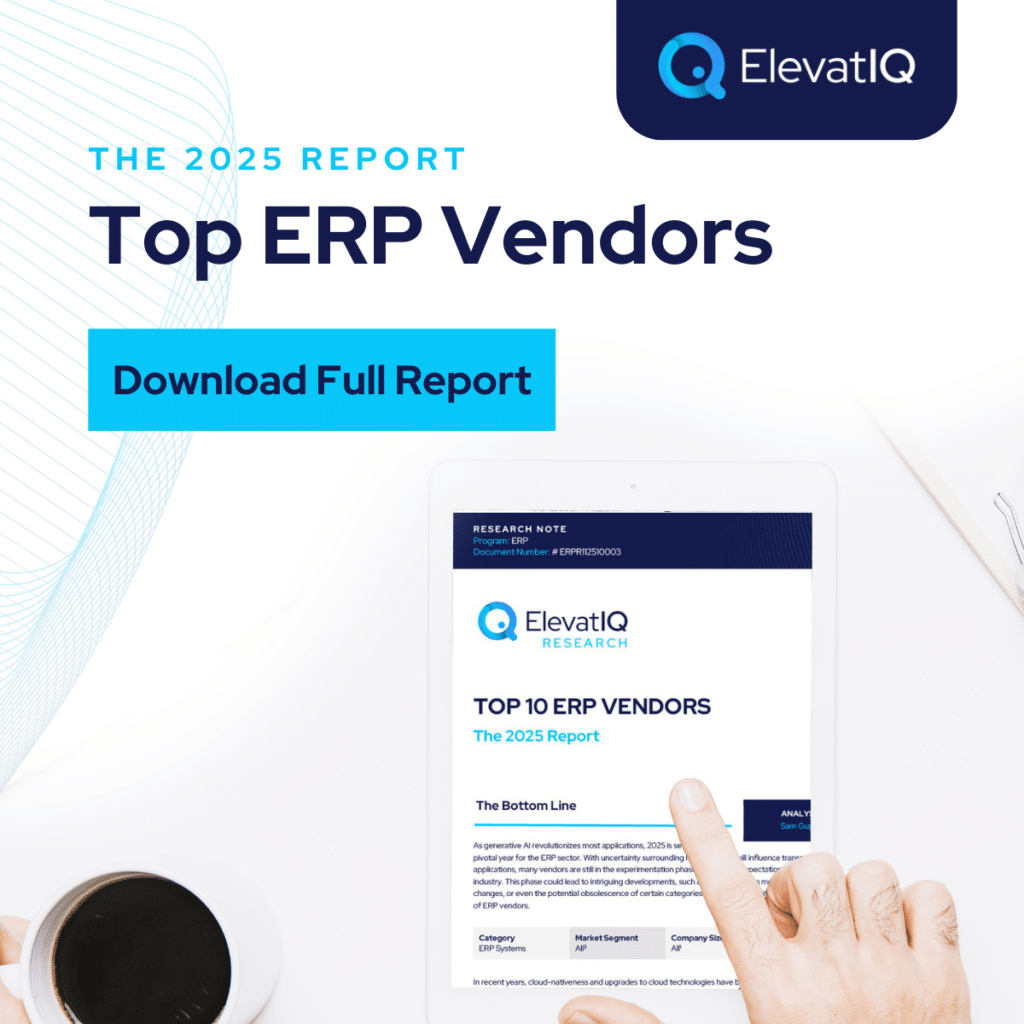
AI Feature Pricing: Protecting Against Cost Escalation
Given vendors’ moves toward AI monetization, organizations negotiating AI in ERP contracts must specifically address AI pricing to prevent future cost surprises and maintain budget predictability.
Defining Included vs. Add-On AI Capabilities
The first critical step when negotiating AI in ERP contracts establishes precisely which AI features come standard with base ERP subscriptions and which require additional payment. Vague contract language like “AI-enabled analytics” or “machine learning capabilities” creates interpretation disputes when you attempt to activate features vendors claim require separate licensing.
Demand exhaustive documentation specifying:
- Explicitly Included AI Features: Detailed lists of AI capabilities included in base licensing—predictive analytics, intelligent process automation, natural language interfaces, anomaly detection, automated reconciliation, or demand forecasting. When reviewing AI in ERP contracts, ensure they list specific AI functionality by technical name rather than general marketing descriptions.
- Separately Licensed AI Components: Clear identification of AI features requiring additional payment, with exact pricing for each component rather than accepting vendor discretion to price AI add-ons after you’ve committed to their platform.
- AI Feature Roadmap: Written commitments regarding whether future AI enhancements will be included in base licensing or require separate purchases. Vendors developing new AI capabilities can charge premium prices for innovations if AI in ERP contracts don’t establish inclusion principles.
Locking In AI Module Pricing
For AI features you don’t need immediately but anticipate requiring within your ERP contract term, negotiate specific pricing today rather than accepting vendor discretion to set rates later when you lack leverage.
- Pre-Negotiated Add-On Rates: Even for AI modules you won’t activate initially, secure specific per-user or consumption-based pricing you can trigger at pre-agreed rates. This prevents vendors from charging premium prices once they recognize your platform dependency.
- Volume Discounts for AI Features: Ensure any volume discounts negotiated for base ERP licenses also apply to AI add-ons rather than allowing vendors to charge higher rates for AI capabilities.
- Most-Favored-Pricing for AI: When structuring AI in ERP contracts, negotiate clauses ensuring you receive AI feature pricing no less favorable than vendors offer similarly-situated customers, protecting against discriminatory pricing that charges existing customers more than new buyers for identical AI capabilities.
Consumption-Based AI Pricing Protections
When AI features operate on consumption models—charged per API call, per prediction, per analysis, or per user interaction—AI in ERP contracts should establish protections against unlimited cost escalation:
- Consumption Caps: Negotiate maximum monthly or annual AI consumption charges regardless of actual usage, protecting against cost spikes during high-volume periods or when broader user populations begin leveraging AI features.
- Included Baseline Usage: Ensure AI in ERP contracts clearly define included AI consumption—number of predictions, analysis requests, or AI-powered transactions—with specific thresholds before overage charges apply.
- Predictable Overage Pricing: When AI consumption exceeds included amounts, negotiate pre-agreed per-unit overage rates rather than accepting vendor flexibility to set prices later.
- Alert Mechanisms: Require vendors to notify you when AI consumption approaches contracted limits (e.g., at 75% and 90% of monthly allowances) so you can adjust usage patterns or renegotiate limits before incurring excessive overage charges.
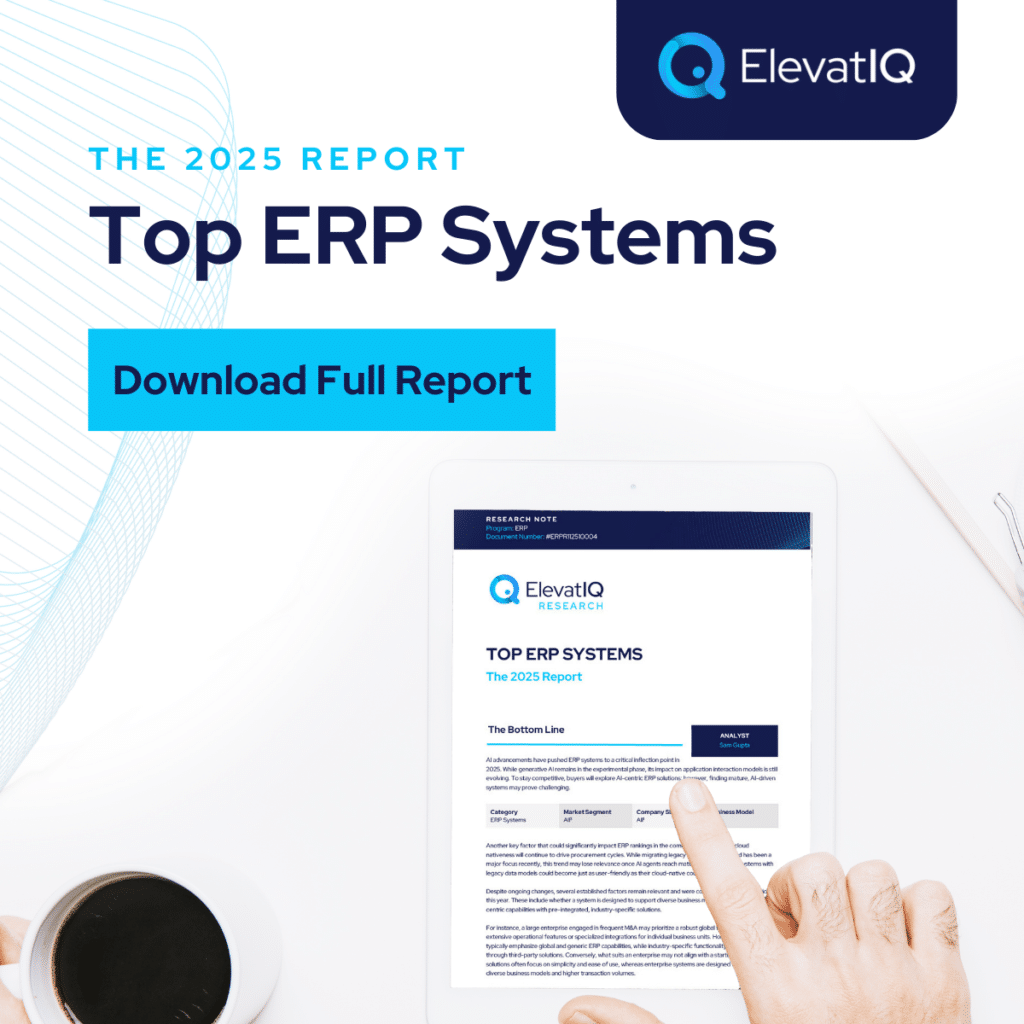
Training Data Rights and Intellectual Property
AI systems learn from data, raising critical questions about who owns insights derived from your operational information and whether vendors can leverage your data to improve products they sell to competitors. These considerations make data rights essential provisions in AI in ERP contracts.
Your Data, Your Rights
Many standard ERP contracts include vague language about vendor rights to use customer data for “product improvement,” “service enhancement,” or “aggregated analytics.” Applied to AI systems, these provisions potentially allow vendors to train algorithms on your proprietary information, creating competitive intelligence they monetize across their customer base.
- Explicit Data Usage Restrictions: When negotiating AI in ERP contracts, secure clear prohibitions on vendor use of your operational data to train AI models, improve algorithms, or create benchmarking insights they share with other customers. Your competitive data should not become vendor intellectual property or enhance competitors’ implementations.
- Derived Insights Ownership: Clarify that all insights, patterns, predictions, and recommendations AI systems generate from your data remain your exclusive property. Vendors should have no rights to these derived insights beyond delivering them to you as contracted services.
- Model Training Transparency: Require vendors to disclose whether AI models deployed in your implementation were trained using other customers’ data. Understanding if predictions and recommendations reflect broader industry patterns versus your organization-specific information informs how you validate and act on AI outputs.
AI Model Customization and Ownership
Organizations increasingly want AI models fine-tuned to their specific business processes, terminology, and requirements rather than accepting generic algorithms vendors provide to all customers.
- Custom Model Ownership: When you invest in customizing AI models to your operations—training algorithms on your processes, optimizing for your KPIs, or developing organization-specific prediction models—AI in ERP contracts should establish clear ownership of these customizations. They represent your intellectual property investment, not vendor assets they can repurpose elsewhere.
- Model Portability Rights: Ensure AI in ERP contracts provide rights to export custom AI models if you transition to alternative ERP platforms. Without portability provisions, switching vendors means abandoning AI customization investments that took years to develop and tune.
- Training Data Retention: Negotiate rights to retain copies of all data used to train custom AI models, ensuring you maintain the information necessary to recreate or continue developing models outside vendor platforms if needed.
Algorithm Transparency and Explainability
AI systems make recommendations, predictions, and automated decisions that directly impact business operations and financial outcomes. Understanding how these algorithms reach conclusions becomes critical for validation, compliance, and risk management in AI in ERP contracts.
The Black Box Problem
Many AI systems operate as “black boxes” where inputs and outputs are visible but the decision-making logic remains opaque. While vendors cite proprietary algorithms as competitive advantages, this opacity creates problems when you need to validate AI recommendations, explain decisions to auditors or regulators, or understand why systems produced unexpected results.
Organizations reviewing AI in ERP contracts should address algorithm transparency through:
- Explainability Requirements: Demand that AI systems provide explanations for significant recommendations or automated decisions in language business users can understand. Rather than accepting unexplained predictions, require insight into which factors drove AI conclusions and how much weight different variables received.
- Audit Rights for AI Logic: Negotiate rights to audit AI decision-making logic, including the ability to review training data, understand model architectures, and verify that algorithms function as documented. These audit rights become particularly critical in regulated industries where AI decisions require regulatory justification.
- Model Documentation: Require vendors to provide comprehensive documentation of AI model types, training methodologies, data sources, and decision factors. This documentation enables your teams to appropriately validate and contextualize AI outputs rather than blindly trusting algorithmic recommendations.
Regulatory Compliance for AI
Emerging AI regulations—including the EU AI Act and various sector-specific requirements—impose transparency, explainability, and accountability obligations that impact how AI systems can be deployed and governed.
- Regulatory Compliance Warranties: When structuring AI in ERP contracts, negotiate specific warranties that AI features comply with applicable regulatory requirements for your industry and geographies. General “compliance with applicable law” language provides insufficient protection for rapidly evolving AI regulations.
- Compliance Responsibility Allocation: Clarify whether vendors or customers bear responsibility for ensuring AI deployments meet regulatory requirements. Many vendors attempt to position AI compliance as customer responsibility while controlling the algorithms and training data that determine compliance status.
- Regulatory Change Obligations: As AI regulations continue evolving, establish vendor obligations to update AI systems to maintain compliance with new requirements. Without such provisions, regulatory changes could force expensive system modifications or render AI features unusable.

Performance Warranties for AI Features
Traditional software includes limited performance warranties, typically promising only that systems will “substantially conform” to documentation. This standard proves insufficient for AI features where accuracy, reliability, and prediction quality directly impact business operations, making performance warranties critical components of AI in ERP contracts.
Establishing AI Performance Standards
AI capabilities warrant specific performance commitments beyond generic software warranties:
- Accuracy Thresholds: For predictive AI features—demand forecasting, revenue predictions, risk assessments—negotiate minimum accuracy standards the vendor guarantees. For example, demand forecasting AI might warrant 85% accuracy within specified confidence intervals.
- Uptime Commitments: AI-powered automation that becomes embedded in business processes requires availability commitments comparable to core ERP functionality. Negotiate service level agreements specifying AI feature uptime with service credits when vendors fail to meet commitments.
- Performance Degradation Protections: AI models can degrade over time as data patterns shift or training becomes stale. AI in ERP contracts should establish vendor obligations to maintain AI performance through regular model updates, retraining, or optimization to prevent capability erosion.
- Response Time Guarantees: Real-time AI features—intelligent process automation, anomaly detection, chatbot interfaces—need specific response time commitments ensuring AI systems perform adequately under production workloads.
Remedies for AI Failures
Beyond establishing performance standards, AI in ERP contracts must define remedies when AI systems fail to meet commitments:
- Service Credits: When AI features fail to meet warranted accuracy, uptime, or performance standards, negotiate automatic service credits that reduce subscription costs proportional to underperformance.
- Termination Rights: For material AI feature failures—sustained inability to meet warranted performance, critical functionality defects, or compliance violations—secure rights to terminate AI modules without penalty while maintaining core ERP access.
- Alternative Solutions: Establish vendor obligations to provide alternative approaches when AI features prove inadequate for documented use cases, whether through different AI methodologies, manual processes, or third-party integrations.
Liability Allocation for AI-Driven Decisions
AI systems increasingly make or influence operational and financial decisions with potentially significant consequences. Standard software liability limitations often prove insufficient for AI-driven outcomes that impact business results, making liability provisions essential when negotiating AI in ERP contracts.
Understanding AI Liability Risks
AI introduces new liability considerations absent from traditional software:
- Automated Decision Consequences: When AI automatically approves transactions, adjusts pricing, prioritizes orders, or allocates resources, errors can create substantial financial exposure or operational disruptions that exceed typical software defect impacts.
- Bias and Discrimination: AI models trained on historical data can perpetuate or amplify biases, potentially creating legal exposure for discriminatory decisions in employment, credit, or customer interactions if AI drives these determinations.
- Regulatory Violations: AI systems that fail to comply with industry regulations—healthcare privacy, financial controls, safety requirements—can trigger penalties that dramatically exceed software licensing costs.
- Intellectual Property Infringement: AI models trained on copyrighted materials or proprietary data create potential IP infringement liability that could impact customers deploying these systems.
Negotiating AI Liability Protections
Standard limitation of liability clauses typically cap vendor financial exposure at amounts paid—often inadequate for AI-driven consequences.
- Enhanced Liability Caps for AI: When structuring AI in ERP contracts, negotiate higher liability limits for AI-specific failures than apply to traditional software defects, reflecting the greater potential impact of AI-driven decisions.
- Carve-Outs from Liability Limitations: Exclude certain AI failures from liability caps entirely, particularly bias/discrimination, regulatory violations, or IP infringement where consequences can substantially exceed contract values.
- Indemnification for AI Claims: Secure vendor indemnification for third-party claims arising from AI system failures—discrimination claims, regulatory penalties, IP infringement accusations—rather than accepting these risks as customer responsibilities.
- Insurance Requirements: For high-stakes AI deployments, require vendors to maintain specific insurance coverage for AI-related claims, ensuring they possess financial resources to satisfy potential liability beyond contractual caps.
Implementation and Integration Costs for AI Features
Beyond licensing and subscription costs, AI features introduce ERP implementation and integration expenses that warrant specific attention in AI in ERP contracts.
AI-Specific Professional Services
Activating AI capabilities typically requires professional services beyond standard ERP implementation:
- Data Preparation and Quality: AI systems need clean, structured, normalized data to function effectively. Negotiate which party bears responsibility for data preparation work and at what cost.
- Model Training and Customization: Generic AI models may require training on your organization’s specific data and processes. Establish pricing for these customization services upfront rather than accepting vendor discretion to charge later.
- Integration with Existing Systems: AI features often need integration with data sources beyond the core ERP—CRM systems, supply chain platforms, financial systems. Clarify integration costs and responsibilities in advance.
- Change Management and Training: AI introduces new workflows and decision-making paradigms requiring user training and change management. Negotiate inclusion of AI-focused training as part of implementation services.
Ongoing AI Support and Maintenance
AI systems require ongoing support beyond traditional application maintenance:
- Model Performance Monitoring: Establish vendor responsibilities for monitoring AI model performance and accuracy over time, identifying degradation, and recommending retraining or optimization.
- Algorithm Updates: As vendors improve AI algorithms, negotiate rights to receive updates without additional fees rather than treating enhanced AI as new features requiring separate licensing.
- Expanded Data Science Support: AI implementations may require ongoing data science expertise to optimize performance, address anomalies, or expand use cases. Clarify whether base support includes AI-specific expertise or requires premium support tiers.
Strategic Approach to Negotiating AI in ERP Contracts
Artificial intelligence represents both significant opportunity and substantial contract complexity within modern ERP implementations. As vendors unbundle AI functionality, create consumption-based pricing models, and introduce new liability considerations, buyers must approach AI-specific contract terms with the same rigor they apply to core ERP licensing.
Organizations that negotiate comprehensive protections in their AI in ERP contracts—securing favorable pricing, protecting data rights, establishing algorithm transparency, warranting performance, and appropriately allocating liability—position themselves for cost-effective AI adoption that enhances rather than constrains operations.
Conversely, buyers who treat AI as an afterthought when negotiating AI in ERP contracts or assume standard software provisions adequately address AI complexities discover they’ve accepted unfavorable economics, relinquished valuable data rights, and assumed inappropriate risks as AI becomes increasingly central to their ERP value proposition.
For organizations navigating ERP procurement in the AI era, independent advisory expertise provides essential guidance through the evolving dynamics of AI in ERP contracts. The specialized knowledge advisors bring to AI-specific negotiations—including pricing structures, data rights, transparency requirements, and liability allocation—typically delivers value far exceeding advisory costs through improved terms, protected rights, and avoided pitfalls that serve organizations throughout their AI-enhanced ERP lifecycle.
